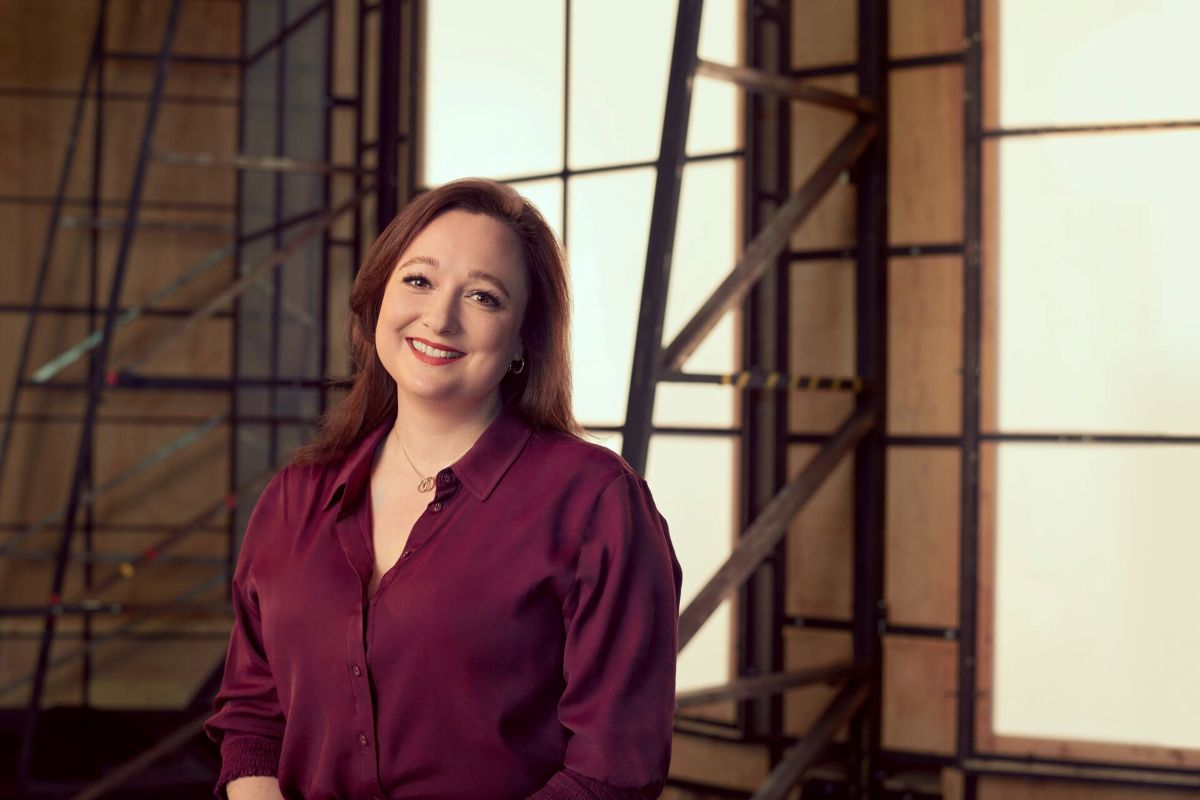As part of the Jette Parker Artists Programme, director Sophie Gilpin tackles a rarely staged Baroque comedy — reframing its outdated humour through a 21st-century lens.
Pimpinone, by Georg Philipp Telemann, premiered in 1725 in Hamburg as a humorous interlude between acts of his more serious opera Tamerlano. Described as a Lustiges Zwischenspiel (“comic intermezzo”), it became a model for later works like Pergolesi’s La serva padrona.
Now, 300 years on, Pimpinone receives a fresh staging in the Linbury Theatre under the direction of Sophie Gilpin, one of this year’s Jette Parker Artists. This production marks not only the opera’s tricentenary but also what is believed to be its first fully resourced professional staging at a major UK opera house.
“I’d never heard of it before it was offered to me by the Jette Parker team,” Sophie admits when we meet at the Royal Opera House. “That’s part of what made it so exciting. There are no established productions to reference, no tradition to work against — just a completely open space to interpret the piece.”
Sophie is no stranger to the operatic world. When not based in London, she lives in Yorkshire and works as a freelance director, often with Opera North, and has led her own company, HeadFirst Productions. She’s also the co-founder of SWAP’ra — Supporting Women and Parents in Opera — a gender-equality organisation advocating for systemic change in the industry.
But Pimpinone has brought its own set of challenges. “It’s a two-hander, and the singers are on stage nearly the entire time — just over an hour — with only a couple of quick changes,” Sophie explains. “That’s a huge storytelling responsibility for two people. And it’s a comedy, which always demands precise timing and tone.”
The cast features two fellow Jette Parker Artists: baritone Grisha Martirosyan as the pompous Pimpinone, and soprano Isabela Díaz as the spirited maid Vespetta. The story follows Vespetta’s employment — and eventual marriage — to Pimpinone, a setup historically played for laughs at the expense of gender roles.
“The original humour depends a lot on tropes that feel uncomfortable now,” Sophie says. “It’s often framed as the cunning woman manipulating a rich man into marriage, and that’s not a narrative I wanted to repeat. It’s lazy and it flattens both characters.”
To reframe the story, she’s chosen to set it in the 1960s — a decade of social transformation and the rise of second-wave feminism. “That setting allows us to explore real change in how people saw work, class, marriage, and gender. It gives Vespetta more agency — not as someone scheming from the start, but as someone adapting and responding to her environment.”
In Sophie’s hands, the opera becomes less about trickery and more about power dynamics — shifting roles and renegotiated relationships. “Vespetta starts out as a maid, tries to leave when she’s not treated well, and then ends up in a marriage that evolves on her terms. It’s not about her winning — it’s about the complexity of what happens when personal and professional boundaries blur.”
That approach demands nuance, but Sophie embraces it. “We’re not trying to make it dark or cynical — it’s still a comedy. But we’re aiming for humour that feels earned, grounded in character, and emotionally real.”
She lights up when talking about her collaborators. “Grisha and Isabela bring so much energy and intelligence to their roles. And the fact that it’s such a rarely performed piece makes it even more collaborative. Everyone’s contributing to shaping something new.”
Pimpinone is one of Sophie’s final projects before she concludes her time with the Royal Opera House. In July, she’ll return to the main stage to direct scenes as part of the Jette Parker summer showcase. After that, she’ll head back north — continuing to balance her directing career with her advocacy work.
“I’ve loved being part of this programme,” she says. “It’s been intense, but hugely rewarding. Getting the chance to work on something like this — something most people have never seen or heard — has been a real gift.”
A gift, too, for audiences. With its sharp reinterpretation, period flair, and a talented young team at the helm, Pimpinone is shaping up to be a witty and thoughtful revival — one that bridges 18th-century satire and 21st-century sensibility with charm and care.
At the Royal Opera Hose
Dates:02-17 May 2025
Photo credit: Sebastian Nevols
Special thanks to Olivia Fahy, Press Assistant at the ROH.

